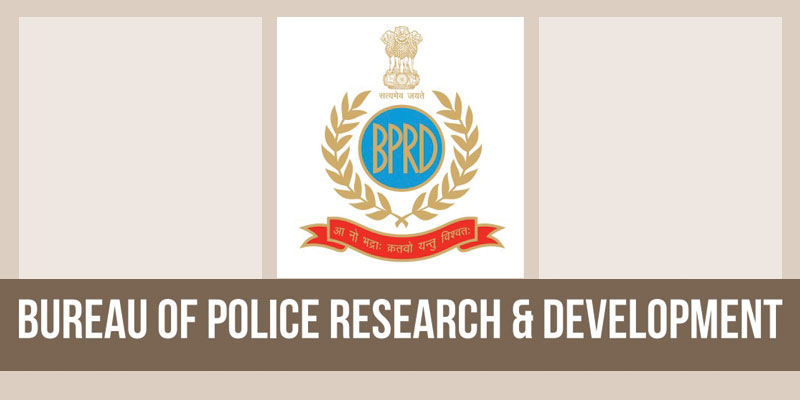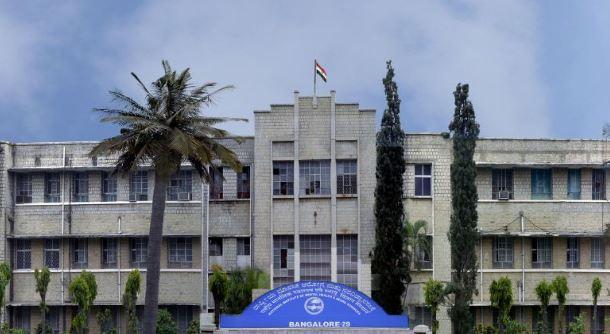Centre appoints Rajeev Kumar Sharma as BPRD chief

On 27th March 2024, the Appointments Committee of the Cabinet approved the name of Rajeev Kumar Sharma, a 1990 batch IPS officer of the Rajasthan cadre, as the Director General of the Bureau of Police Research and Development (BPRD). The tenure came into effect on 31st March 2024, and he will head the BPRD till 30th June 2026.
About Rajeev Kumar Sharma
Before this appointment, Sharma served as the director general (DG) of the Anti-Corruption Bureau (ACB) in Jaipur.
Sharma has held several key positions in Rajasthan, including DG of law and order, director of the Rajasthan Police Academy (RPA), and IGP of Bharatpur Range. Additionally, he has served as the joint director at the Central Bureau of Investigation (CBI) in New Delhi.
A recipient of the President police medal, Sharma is the second senior officer from the state cadre to hold a director general (DG) rank at the central level. Another IPS officer from Rajasthan, Nina Singh, belonging to the 1989 batch, currently serves as the DG of the Central Industrial Security Force (CISF). Sharma is among three senior IPS officers selected for DG positions in various central agencies such as BPRD, the National Investigation Agency (NIA), and the National Disaster Relief Force (NDRF).
What is the Bureau of Police Research & Development (BPRD)?
The Bureau of Police Research & Development (BPRD) was established on 28th August 1970, through a resolution of the Ministry of Home Affairs giving a new orientation to the erstwhile Police Research and Advisory Council.
It was established with a mandate to promote excellence in policing, promote speedy and systematic study of police problems, and apply science and technology in the methods and techniques used by the police. It undertakes appropriate research projects and studies to suggest policy options to address emerging challenges.
BPRD is the apex body at the national level to promote excellence and best values in policing, prisons, and correctional administration.
The charter of BPRD has been expanded over the years and it now also includes all aspects of internal security, land, and sea border management, capacity building of Central Armed Police Forces (CAPFs) and their Special Units, police image, and police-community interface, juvenile justice, women’s safety and prosecution.
The BPRD has five Central Detective Training Institutes at Kolkata, Hyderabad, Chandigarh, Ghaziabad, and Jaipur dedicated for the training of police officers and other stakeholders.
Wings of BPRD
- Research & Correctional Administration: Identifies, initiates, and guides research in key areas of policing and correctional administration. It studies issues related to prisons and prison reforms.
- Training Division: Formulates and coordinates training, policies, and programmes.
- Modernisation Division: Studies new products and technology for induction into policing and formulates quality standards.
- National Police Mission: Pools in the experience and expertise of field officers to evolve viable solutions in mission mode.
- Administration Division: Provides all backup services.
- Special Police Division: Specialises in internal security and policing grid such as human trafficking, gender issues, problems of senior citizens, and special segments.
BPRD’s studies focus on:
- Trends and causes of various types of crime.
- Crime preventive measures, their effectiveness, and relationship with various forms of crime.
- Improvement in the methods of investigation, utility, and results of introducing scientific aid.
BPRD’s Duties
- Assist research programmes in states/UTs, coordination of research projects.
- Sponsor research projects in the areas of professional interest.
- Organise the All-India Police Science Congress and actively participate in and coordinate other national and international conferences and seminars.
- Identify, promote, and disseminate best practices and standards to bring about police reforms uniformly in states/UTs.
- Analyse and study police and prison statistics and problems of general administration.
- Assimilation and dissemination of information to the states/UTs in the field of police and correctional administration.







